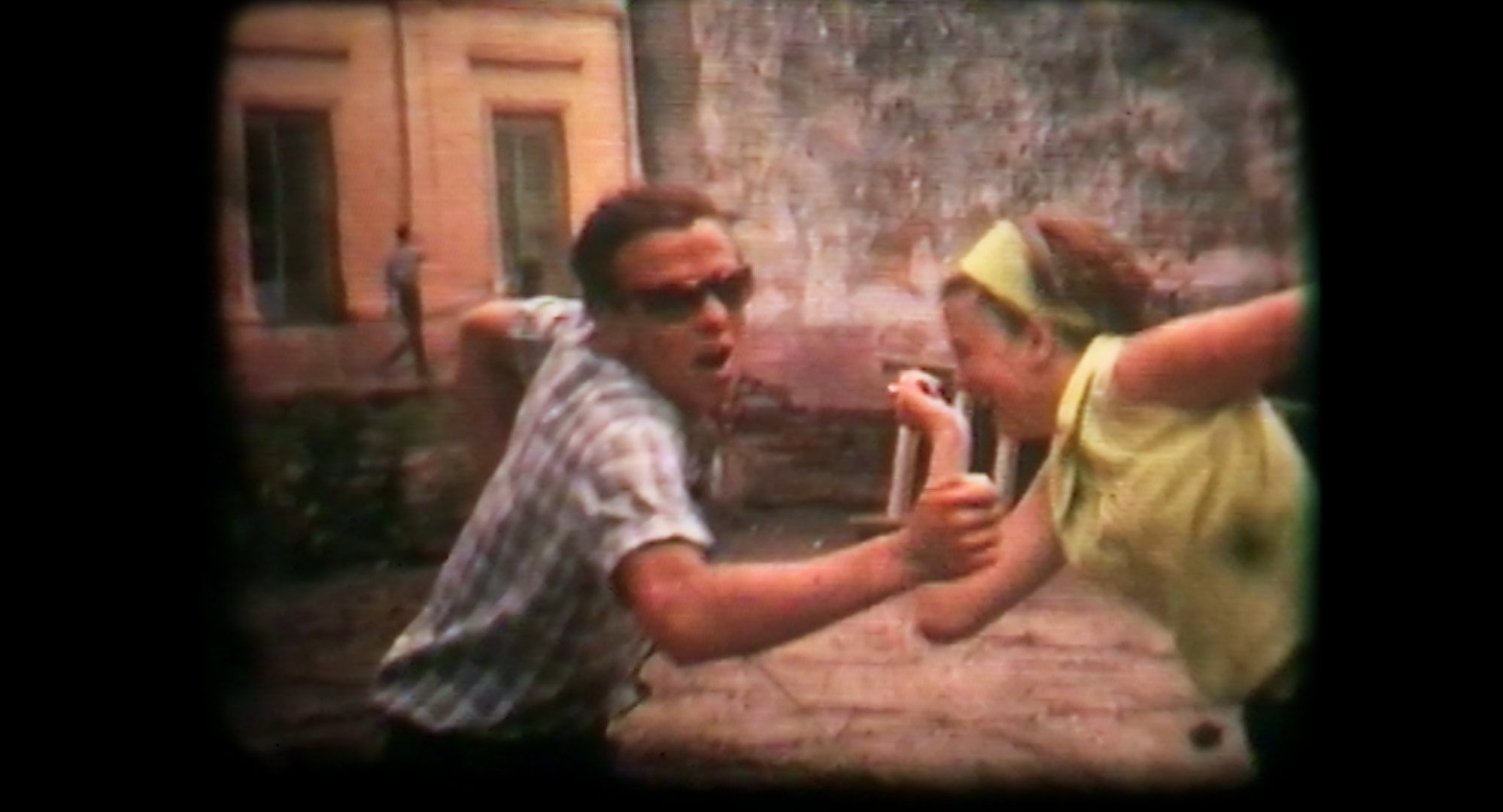My Uncle’s House
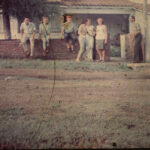
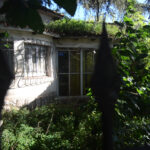
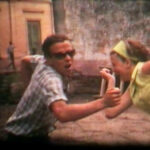
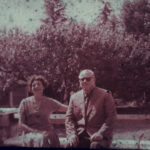
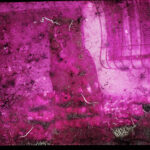
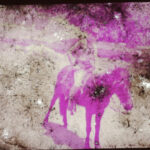
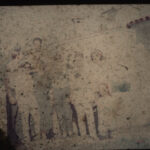
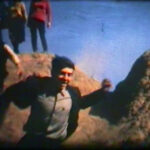
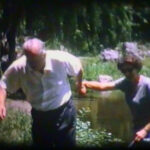
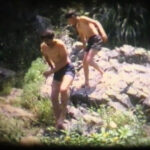
- Technical Info / Información Técnica:
(2022) / 01:15:00 / 16:9 / Color / Sound: 5.1 / PAL / 24 FPS / Nikon D7000 / 2k / First Documnetary Feature: portrait, family, politic, human rights / Santa Fé, Argentina
- Short Synopsis / Sinopsis Corta:
“Don’t kill the youth.” Mariano grows up wrapped in this phrase, as the most substantial legacy he receives from his aunt and uncle. Eight years after Aunt Hilda’s death, she returns to the house to empty it out.
“A la juventud no se la mata”. Mariano crece arropado en esta frase, como el legado más sustancial que recibe de sus tíos. Ocho años después de la muerte de su tía, regresa a la casa para vaciarla.
- Synopsis / Sinopsis:
“Don’t kill the youth.” Mariano grows up wrapped in this phrase, as the most substantial legacy he receives from his aunt and uncle. Eight years after Aunt Hilda’s death, she returns to the house to empty it out. There is no one else who can perform this task. “My uncle’s house” is a place where memories and ghosts dispute the memory of a country in the face of the destruction of the passage of time.
“A la juventud no se la mata”. Mariano crece arropado en esta frase, como el legado más sustancial que recibe de sus tíos. Ocho años después de la muerte de tía Hilda, regresa a la casa para vaciarla. No hay nadie más que pueda realizar esta tarea. “La casa de los tíos” es un lugar donde recuerdos y fantasmas le disputan la memoria de un país ante la destrucción del paso del tiempo.
- Long Synopsis / Sinopsis Larga:
“Don’t kill the youth.” Mariano’s entry into the family was signed by tragedy. He was only a baby when his militant cousins were murdered in the early ‘70s, in Argentina. In this context, Aunt Hilda and Uncle Miguel’s house, located in Río Ceballos on the Córdoba Mountain Range, lay on the comings and goings of loving refuge and pain, in the absence of the cousins. When Hilda dies, the place remains shuttered and abandoned. Eight years later, Mariano begins the process of emptying the house, the last task. A sacrilege and a release at the same time. His own sway between memories and ghosts. His eyes as a child witnessed the struggle of his aunt and uncle, the resistance against every single inhumane thing that took place during the last military dictatorship in the country. Now, Mariano’s little children are the ones that witness the path that they must follow to discover the final fate and solve the enigma of the story that the house keeps.
“A la juventud no se la mata”. La entrada de Mariano a la familia estuvo marcada por la tragedia. Era un bebé cuando asesinaron a sus primos militantes a comienzos de los 70 en Argentina. En este contexto, la casa de Río Ceballos en las sierras de Córdoba de los tíos Hilda y Miguel, existió en el vaivén de refugio amoroso y dolor ante la ausencia de los primos. Cuando Hilda muere, el lugar queda cerrado y abandonado. Ocho años después Mariano emprende el proceso de vaciar la casa, la última tarea. Un sacrilegio y una liberación. Su propio vaivén entre recuerdos y fantasmas. Sus ojos de niño fueron testigos de la lucha de sus tíos, de la resistencia ante todo lo inhumano que desplegó los años de la última dictadura militar en el país y ahora son los hijos pequeños de Mariano, los testigos del camino que deberá cumplir para resolver el destino final de la historia que guarda la casa.
- Director´s Biography / Biografía del Director:
VERÓNICA ROSSI
From 1999 to 2013 I lived in Barcelona, where I worked as a film editor on documentaries for Televisión de Catalunya and Televisión Española. I was also part of the documentary projects team promoted by the international radio broadcasting company. After returning to Argentina, I continued participating in many documentary productions, and some of them have obtained proper recognition at festivals around the world. “La casa de los tíos” (My Uncle’s House) is my first documentary as a director.
Desde 1999 hasta 2013 residí en Barcelona donde trabajé como montadora en documentales para Televisión de Catalunya y Televisión Española, también formé parte del equipo de proyectos documentales impulsados desde la Unión Europea de Radiodifusión. A partir del regreso a Argentina, continué participando en numerosas producciones documentales, algunas fueron merecedoras de reconocimientos en festivales del mundo. “La casa de los tíos” es mi primer documental como directora.
- Director’s Statement / Declaraciones del Director:
The day we left for Aunt Hilda and Uncle Miguel’s house, I borrowed a camera despite Mariano’s reluctance, and I followed him when he opened the door of the house eight years after Hilda’s death. We came back with a handful of images and the conviction of wanting to tell the story that was still burning inside. We were a family diving into enduring memories and kept secrets, pulling together the threads that unite us all: the present and the past. There was modesty in Mariano when opening the drawers of the house, and some self-confidence in our children. The fact that we were there was a historical consequence. A remnant of the Argentinian history when the foundations were established for what would later be the process of annihilation of a generation that today would be the age of our parents. Pepe and Migue were the cousins that Mariano knew from the paintings hanging on the walls and the clues that were inside the house. Militants of the People’s Revolutionary Army were assassinated as soon as the ’70s began. Migue Polti is one of those who fell in the Trelew Massacre, and soon it will be the 50th anniversary of that remarkable event. If Hilda and Miguel did anything, it was cling to love to resist every single inhuman thing that surrounded them back then. That was his battle, and we wanted that something of that spirit could be captured in the documentary.
El día que partimos hacia la casa de tía Hilda y tío Miguel, pedí una cámara prestada a pesar de las reticencias de Mariano y lo seguí cuando abrió la puerta de la casa ocho años después de que muriera Hilda. Volvimos con un puñado de imágenes y la convicción de querer contar la historia que seguía prendida en su interior. Éramos una familia buceando en los recuerdos y en los secretos guardados. Tensando los hilos que nos unen a todos, presente y pasado. Había pudor en Mariano al abrir los cajones de la casa y algo de desparpajo en nuestros hijes. Que nosotros estuviéramos ahí, era una consecuencia histórica. Un resabio de la historia argentina cuando se afirmaban las bases de lo que después fue el proceso de aniquilación de una generación que hoy tendría la edad de nuestros padres. Pepe y Migue eran los primos que Mariano conoció por los cuadros colgados en las paredes y las pistas que estaban dentro de la casa; militantes del Ejército Revolucionario del Pueblo, asesinados ni bien comenzaban los ´70. Migue Polti es uno de los caídos en la Masacre de Trelew, que pronto se cumplirán los 50 años de ese marcado suceso. Si algo hicieron Hilda y Miguel, fue aferrarse al amor para resistir a todo lo inhumano que les rodeaba en aquel entonces. Esa fue su batalla y nosotros quisimos que algo de ese espíritu quedará en el documental.
- Overview / Ficha técnica:
Script & Director / Guion y dirección: Verónica Rossi
Executive producer / Producción Ejecutiva: Ana Taleb
DoF / DF: Lucas Pérez, Verónica Rossi
Camera / Cámara: Cecilia Sarmiento, Claudio Perrin
Sound Design / Dirección de Sonido: Santiago Zecca
Editing / Montaje: Verónica Rossi
Original Music / Música Original: Pablo Sorini, Pablo Alfredo Vergara
- Festivals, Awards and Nominations / Festivales, Premios y Nominaciones:
- Links:
Trailer: https://vimeo.com/680444564
Social Media:
https://www.instagram.com/lacasadelostios_documental/
https://www.instagram.com/anuktaleb/
https://www.facebook.com/anukt
https://www.instagram.com/cinespuma/
https://www.facebook.com/cinespuma/
- Contact / Contacto:
Gisela Chicolino
FilmsToFestivals Distribution Agency
https://instagram.com/films.to.festivals
